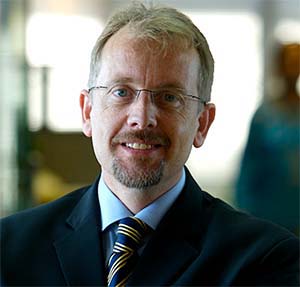he IDC CIO Summit tackled the issues around digitalisation, touching on the technologies driving transformation, including blockchain, cloud, artificial intelligence and autonomous systems. Kathy Gibson reports
How IT can drive digital transformation
 As business embraces digital transformation, the IT industry is being driven by the need to create new and compelling systems that can increase revenue – and to do this quickly, at scale.
As business embraces digital transformation, the IT industry is being driven by the need to create new and compelling systems that can increase revenue – and to do this quickly, at scale.
This is word from Jyoti Lalchandani, group vice-president and regional MD: Middle East and Africa at IDC, who points out that CIOs today are faced with the need to become operationally efficient and agile, transforming customers experience and expectation.
“We are essentially going through the second chapter of the 3rd Platform,” Lalchandani says.
Read the full story here
Blockchain and its use in the real world
 The blockchain revolution is real, and gaining pace.
The blockchain revolution is real, and gaining pace.
The generic definition of a revoltion, says Jon Tullett, research manager: IT services, Africa at IDC, is when a group of people get together to overthrow an existing order.
“Revolutions also seldom know where they are going,” he adds.
“Blockchain revolutions are similar. Users are generally starting off by looking for a way to exchange information – but they could have a profound impact on businesses and industries.”
Read the full story here
CIOs must manage business expectations
 CIOs have the unenviable task of managing corporate expectations in a world where instant results are taken for granted.
CIOs have the unenviable task of managing corporate expectations in a world where instant results are taken for granted.
Much of the time, IT doesn’t get enough time or attention at the board level, as budgets come under pressure in a world where more services than ever are required, according to Mark Walker, associate vice-president: sub-Saharan Africa at IDC.
Read the full story here
How will you position IT for digitalisation?
Digital transformation on the mind of every CIO, looking for new revenue streams or to counteract new competition – but IT could be making themselves irrelevant in the new world.
There is no longer a huge disconnect between traditional business and digital business any more – even the most traditional of businesses are now digital, says Arnaud Chain, vice-president: enterprise and strategy, EMEA at VMware.
And business people are not interested in how complex life might be for IT: they want the services they need, when they need them.
Read the full story here
The future of motoring is digital
The traditional automotive market is seeing massive disruption from competitors in the technology space.
Claycia Johnson, brand management at BMW, points out that tech giants like Google and Apple are the new competitors that motor manufacturers are up against. And the best way to meet these new challenges is with technology.
Read the full story here
The technologies that are shaking up IT
Disruptive forces are driving new technology directions – and organisations that don’t at least understand them run the risk of being left behind.
IDC has identified the key technology trends that are poised to make an impact on business and, necessarily, on IT.
The traditional IT spend is on what IDC calls the 3rd Platform applications of collaboration/social, mobility, cloud, security and analytics, says Jyoti Lalchandani, group vice-president and regional MD: Middle East and Africa at IDC.
Interestingly, he points out, IT growth is growing faster than GDP, with this year’s growth forecast at about 5%.
Read the full story here
The journey to an autonomous future
The speed of technological advancement can catch CIOs unaware: while they are deploying systems they are already obsolete.
One way to circumvent that is through autonomous application development, says Jon Tullett, research manager: IT services, Africa at IDC.
There are three transformative technologies that companies have to consider today, says Itayi Mandonga, cloud champion at Oracle SA.
Read the full story here
Focus on people in the digital economy
Companies that want to thrive in the digital economy have to pay close attention to skills.
Products and process are important to be able to function better in the new world, explains Tony Parry, CEO of IITPSA.
In this respect, technologies like Internet of Things, artificial intelligence, big data, blockchain and more are added to the systems that IT has to keep running anyway.
Read the full story here
